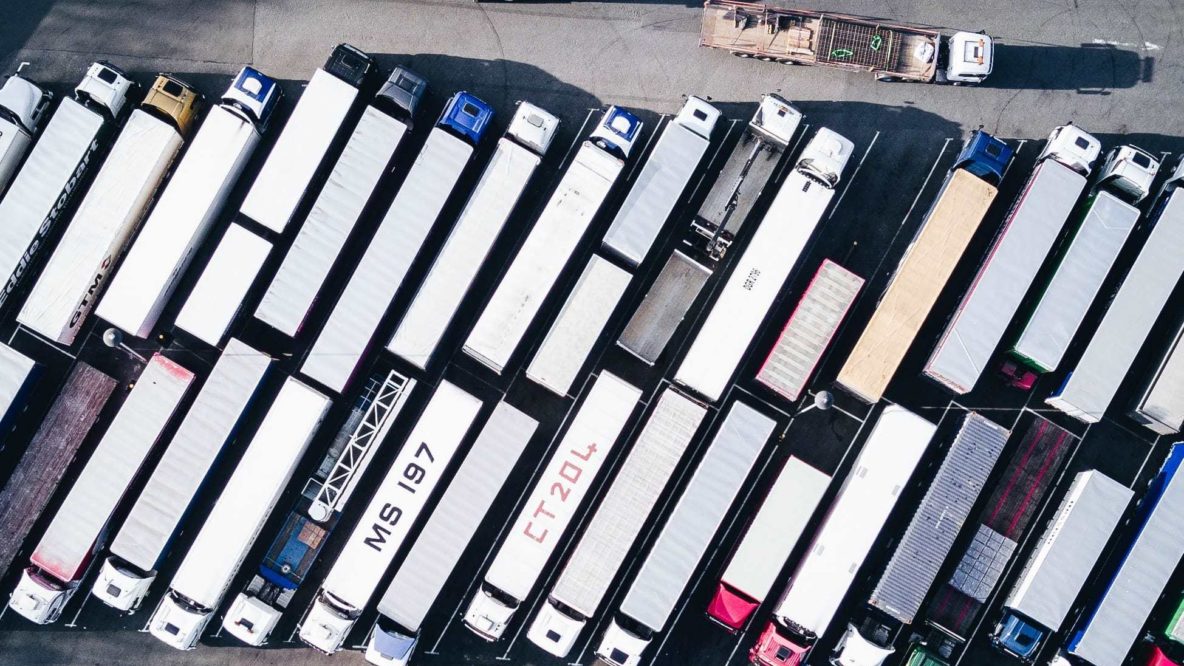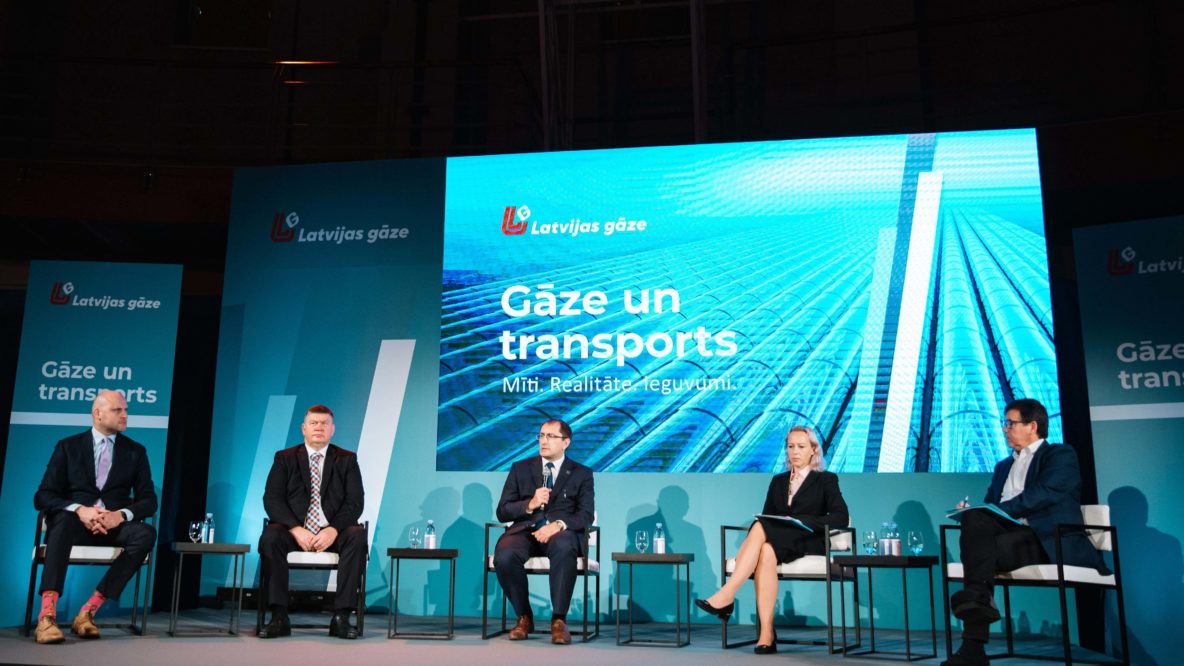One of the current challenges for EU climate policy is that legislation does not assist in reducing transport emissions. Executive Director of the German Gas Association Dr Timm Kehler concluded during the panel discussion that emissions have not decreased in the last 30 years since the road to climate neutrality in transport, especially road transport, commenced. According to Dr Kehler, one of the main shortcomings of the EU legal framework is its focus on exhaust emissions, without considering the total CO2 footprint of the vehicle and of fuel as an energy source, which would mean including the entire production cycle. CNG and biomethane would have a relatively fast impact on reducing emissions from road transport and, in the long run, also from other modes of transport. In order to promote the wider use of the alternative fuels, a comprehensive review of the EU CO2 reduction legislation is needed.
The Minister of Transport Tālis Linkaits agreed that the set climate objectives are ambitious. He believes that CNG transport in Latvia has a future in cities where passengers are transported by buses. The city of Jēkabpils is one of the success stories, and the Ministry of Transport has already allocated funds to Daugavpils for replacing the city’s bus fleet with new CNG buses as well. The wider use of CNG and biomethane cars could also be considered for carriers performing regular transportation in urban centres or densely populated areas, as CNG and biomethane engines are quieter than conventional fossil fuel engines and hardly emit any fine dust particles.
Alda Ozola, the Deputy State Secretary of the Ministry of Environmental Protection and Regional Development, informed: “Experts of the European Commission have modelled that the share of natural gas in the energy resources used in the transport sector will only reach an average of around 3% in the EU in 2030, although, the share may vary slightly from one member state to another. It should be borne in mind that, in the short and medium term, the use of natural gas in vehicles can play a greater role as a transitional solution, allowing the reduction of GHG emissions and movement towards reaching the 2030 climate objectives.
Both Aigars Kalvītis, Chairman of the Board of Latvijas Gāze, and Andris Kulbergs, President of the Latvian Automobile Association, draw attention to this in certain transport segments, such as freight and passenger transport; alternative fuels such as CNG and biomethane will be a long-term solution, as other technologies are still disproportionately expensive for the Latvian market and consequently their use would unduly increase the cost of related services.
Natural gas has a price advantage and the CNG car fleet would provide financial savings. However, more important than the cost of running a car is the availability of service stations. The network of Virši service stations is working very hard to ensure that there will be four CNG filling stations in Latvia by the end of this year and at least three more next year. In addition, Latvijas Gāze has started to offer companies the installation of private natural gas filling stations on their premises.
Experts agreed that fiscal support would encourage the use of more environmentally friendly vehicles. Aigars Kalvītis stated that the government has supported the proposal to reduce the excise tax rate on natural gas used in vehicles by almost five times and now, the draft law is being considered by the Saeima.
Kulbergs emphasised that this was the first step in promoting the use of alternative fuels. The next step is the renewal of the Latvian car fleet, while stimulating the purchase of more environmentally friendly vehicles. “Currently, 75% of cars in Latvia are more than ten years old and the situation has not improved in recent years. I believe that this problem is partly due to the tax burden and the unavailability of bank funding. Therefore, in our opinion, it is necessary to create a low-emission car segment, which has special tax benefits and financial support for the first instalment,” explained Mr Kulbergs. Reinis Bērziņš, Chairman of the Board of ALTUM, stated that financial support in the shape of a first instalment guarantee could be provided by ALTUM and the Lithuanian practice could also be introduced in Latvia, issuing a EUR 1000 voucher for replacing a car that is more than ten years old.
Discussions on the use of more environmentally friendly vehicles and the promotion of alternative fuels will certainly continue in the future. Chairman of the Board of Latvijas Gāze invites politicians, international experts and representatives of non-governmental organisations in the field of transport to have a discussion on how to use the available resources for the benefit of the state, entrepreneurs and society.



